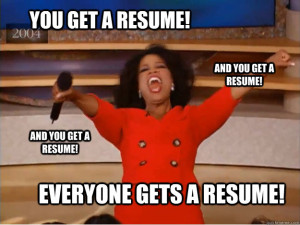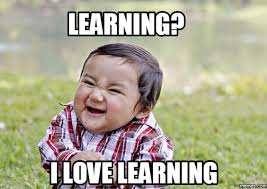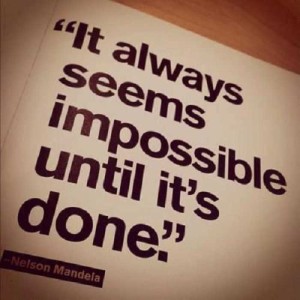
What to Do When Someone Tells You “You’re Not Good Enough”

This post comes from Jordan C., who interned in the marketing department at Reynolds over the summer.
Have you ever been told you couldn’t do something? Has anyone said you don’t compare to your peers? Have you heard the line, “you’re not good enough?”
I’ve heard it all.
My sophomore year of college I was taking an upper level class, one that typically only second semester juniors or seniors take. The class was : Social Media and Personal Branding. The objective of the course was to learn how to use social media in marketing, branding, and communications. We learned what platforms work best for different types of marketing, when to post on what platforms, how to use videos and images within the posts, what content to produce, and how to create a consistent brand.
For our final project, we had to create a digital hub for our own personal brand using everything we learned over the course of the semester. We had to use examples of professionals working in our ideal field of work, create three months worth of mock content, set short-term and long-term goals for our hubs, and create an overall consistent brand for ourselves.
At the end of my presentation, both of my professors (yes, I had two professors) started hammering me with questions. They weren’t convinced my digital hub was going to make me look good or make me stand out from my peers. They basically told me my project, content, and experiences weren’t good enough to allow me to be hired.
It was a lot to handle and I was really defeated by their comments. I was down on myself and never thought I would get a job after graduation. After a few weeks of thinking about what they said, I realized their comments were one of the best things to happen to me. I used them as motivation to learn more, do more, and be more.
If someone has ever said you couldn’t do something or aren’t good enough, here are some tips on how to handle that feedback:
- Don’t take it personally.
I made the mistake of letting their comments hit me hard. I took them as personally as one could. My best advice is to turn the comments or situation into constructive criticism. Turn what they said around and see how you can use it to better yourself. Learn from the criticism and grow into the professional you hope to be.
- Apply for every position possible.
Whether it’s a position on campus or a major internship, apply for it and take every opportunity that comes your way. Experience is the best way to learn and grow. Future teachers have to student teach, nurses go through clinical practices, and foreign language majors study abroad – this all builds experience and prepares them for their careers after college. Find out of the classroom opportunities that will contribute to your career goals and accomplish them.
- Learn from every experience you have.
When it comes to preparing for your future, the most important thing is to learn from every experience you have. Whether that is in the classroom, from a student organization, internship, or part-time employment, take in every aspect of the experience and learn from it. Learn how the skills from those experiences can help you in future careers, how the interactions with others can be adapted to future encounters, and gain professionalism that you can apply to future work environments.
What to do from here:
Use these tips to overcome criticism and better prepare yourself for life after graduation. Do everything you can to grow and better yourself professionally, and always work hard. Don’t give up on what you’re doing or on yourself. You will graduate, you will get that job, and you will succeed.




















